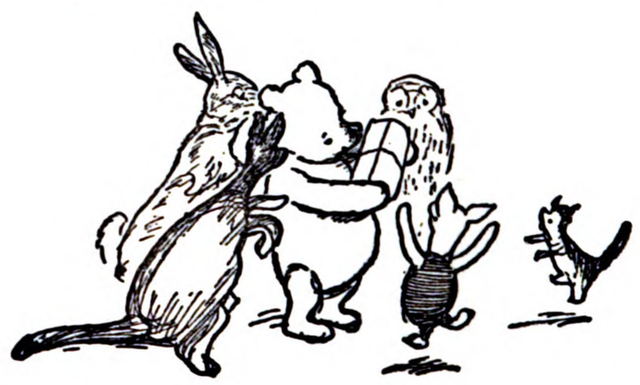
Happy Birthday, A.A. Milne
The Legacy Of A.A. Milne
142 years ago, Alan Alexander Milne, on January 18th, was born. Throughout his life, he got up to a fair bit and was both a playwright and poet. But he’s undoubtedly best remembered for creating that loveable yellow bear we call Winnie the Pooh. And while his honey-loving bear remains the highlight of his legacy, A.A. Milne’s influence stretches beyond the Hundred Acre Wood.
The Man Behind The Bear
Naturally, in his younger years, A.A. Milne was gifted. Although he was brilliant at maths, his passion was always in writing and making people laugh. Despite attending Trinity College, Oxford and Cambridge University, it was his contributions to magazines that would set him up for future success. His breakthrough into the literary scene came when he served as assistant editor of Punch magazine. Milne had an almost uncanny knack for the whimsical which earned him popularity and this laid the foundation for his later success as a children’s author.
In 1920, Milne published his first children’s book, When We Were Very Young, a collection of poems that captivated young readers and set the stage for his success with Winnie just a few years later.
On To A Winnie
In 1926, along came the bear that would completely change A.A. Milne’s life, Winnie the Pooh, Inspired by his son and his cuddly toys, the book brought to the world the lovably unforgettable Pooh, as well as his cohort of plushy friends; Piglet, Eeyore, Tigger and others. To say that it was a success would be a bit of an understatement, given the fact that these characters are still popular with children and adults alike almost a century later—kids may love Pooh, but once they hit a certain age, Eeyore becomes uncannily relatable. Milne’s blend of humour, insight and melancholy made Winnie the Pooh a timeless classic.
But Milne didn’t stop there. He continued to write novels, plays, and essays. His plays, in particular, were well-received on both sides of the Atlantic, but they never received quite the attention that Pooh did. That would soon become a problem.
Oh, Bother: A Problematic Pooh
A.A. Milne liked to be versatile, and in particular, he enjoyed being a playwright. But as Pooh only got more and more popular, there was a growing demand for more and more stories—and as a result, less and less time for him to focus on what he really wanted to do. So of course, he went and wrote essays and articles detailing his gripes and frustration with being primarily known as a children’s author. He wanted to be known for more than just that bear. Then things got worse.
World War II brought another dimension to Milne’s life. Despite his initial pacifist stance, he served in the British Army, which had a profound impact on him. The experience inspired his wartime writings, including the poignant play The Ivory Door (1941) and the essay collection War with Honour (1940).
A Legacy At Risk?
In his later years, Milne retreated from the public eye, choosing to spend the last of his years in privacy, writing in his home on Crotchford Farm in Sussex. He passed away on January 31, 1956, leaving behind Pooh and the Hundred Acre Wood to live on for him.
“I suppose that every one of us hopes secretly for immortality; to leave a name behind him which will live forever in this world, whatever he may be doing, himself, in the next.” –Milne on his legacy.
However, speaking of legacy, Milne’s original iteration of the bear entered the public domain recently. It didn’t take long for a new kind of Pooh to hit the mainstream. A.A. Milne isn’t the first author to have their works adapted and changed once they hit the public domain, but generally, intellectual properties, such as Sherlock Holmes, have been handled with the respect and reverence of their original creators, often simply reimagined for contemporary audiences. But in this case, 2023’s Winnie-the-Pooh: Blood and Honey, upended Milne’s concept into a slasher horror film. When Christopher Robin heads to college, Pooh and Piglet set out on a bloody rampage as they look to eat something else other than honey. Panned by both critics and audiences, that didn’t stop it from earning millions at the box office on a shoestring budget.
It begs the question, with more and more intellectual properties from classic and beloved authors soon to come into the public domain – Disney’s Steamboat Willie is up next for the horror treatment – how will these beloved characters, stories and authors be remembered in the next hundred years? Blood and Honey’s director has recently commented on the potential legal problems for this burgeoning genre, though, so perhaps it will be short-lived.
For anyone interested in studying English or English Literature with Oxford Open Learning, you can do so at various levels, as shown below.
If you are a student under 18 you can also study English at Key Stage 3 level with Oxford Home Schooling.